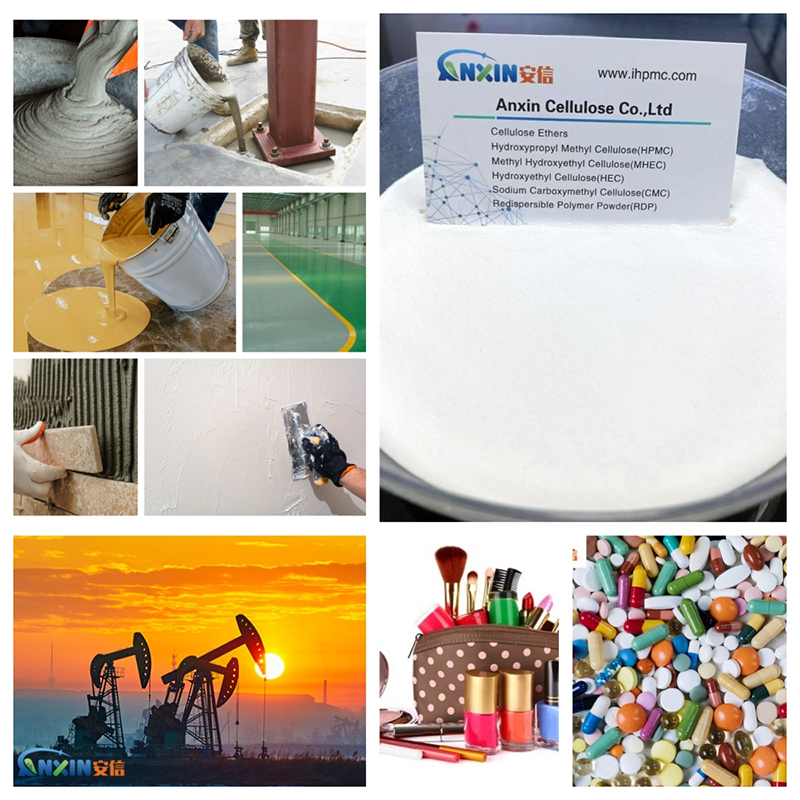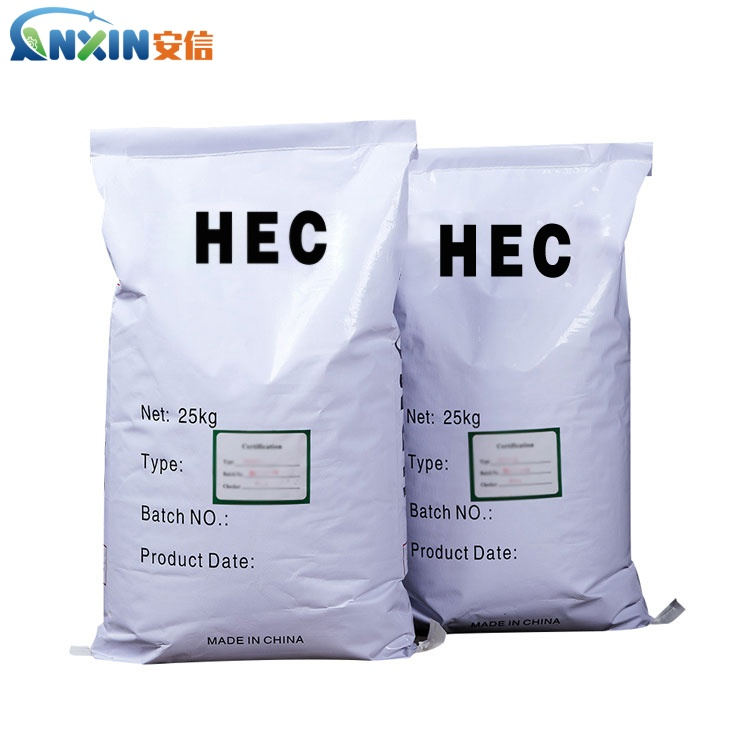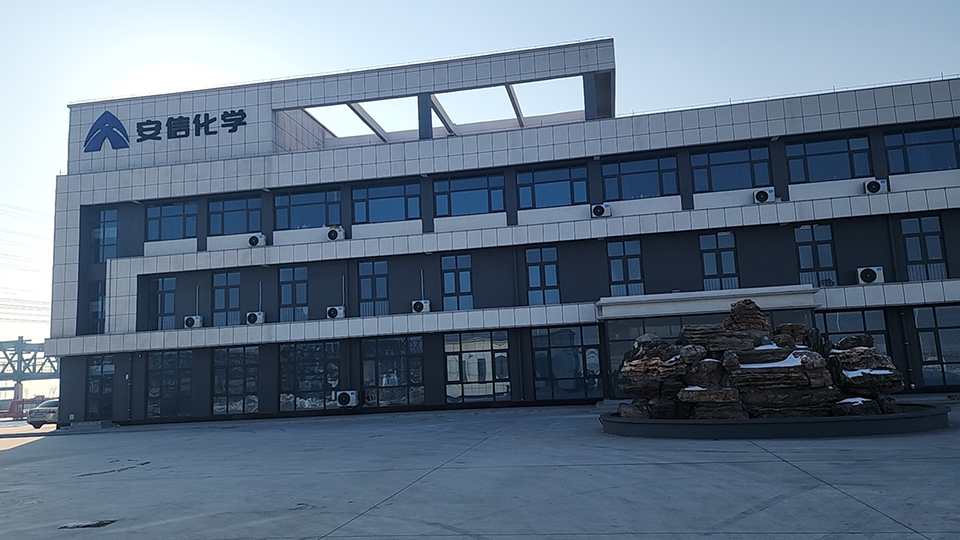1. What is hydroxyethyl cellulose (HEC)?
Hydroxyethyl cellulose (HEC) is a natural polymer compound and a cellulose derivative. It is a water-soluble ether compound obtained by the reaction of cellulose with ethylene oxide. The chemical structure of hydroxyethyl cellulose contains the basic skeleton of cellulose, and at the same time introduces hydroxyethyl (-CH2CH2OH) substituents into its molecular chain, which gives it water solubility and certain physical and chemical properties. It is a non-toxic, non-irritating and biodegradable chemical widely used in various industries.

2. Performance of hydroxyethyl cellulose
Water solubility: Hydroxyethyl cellulose has good solubility in water and can be quickly dissolved in cold or hot water to form a viscous solution. The solubility increases with the increase of the degree of hydroxyethylation, so it has good controllability in industrial applications.
Viscosity characteristics: The solution viscosity of hydroxyethyl cellulose is closely related to its molecular weight, the degree of hydroxyethylation and the concentration of the solution. Its viscosity can be adjusted in different applications to meet different process requirements. At low concentrations, it behaves as a low-viscosity solution, while at high concentrations, the viscosity increases rapidly, providing strong rheological properties.
Nonionicity: Hydroxyethyl cellulose is a nonionic surfactant that is not affected by changes in the pH value of the solution, so it exhibits good stability under different environmental conditions. This property makes it widely used in many formulations that require stability.
Thickening: Hydroxyethyl cellulose has good thickening properties and is used as a thickener in many water-based formulations. It can effectively increase the viscosity of the liquid and adjust the fluidity and operability of the product.
Film-forming and emulsifying properties: Hydroxyethyl cellulose has certain film-forming and emulsifying properties, and can stably disperse different ingredients in a multiphase system. This property is especially important in the cosmetics and coatings industries.
Thermal stability and solubility: Hydroxyethyl cellulose is relatively stable to heat, can maintain its solubility and function within a certain temperature range, and adapt to the needs of high temperature environments. This property makes it advantageous for application in some special environments.
Biodegradability: Due to its natural cellulose source, hydroxyethyl cellulose has good biodegradability, so it has little impact on the environment and is an environmentally friendly material.

3. Application fields of hydroxyethyl cellulose
Construction and coating industry: Hydroxyethyl cellulose is often used as a thickener and water retaining agent in the construction industry, and is widely used in cement mortar, adhesives, dry mortar and other products. It can improve the operability and fluidity of the material, improve the adhesion and waterproof performance of the coating. Due to its good water retention, it can effectively extend the open time of the material, prevent the evaporation of water too quickly, and ensure the construction quality.
Oil extraction and drilling fluid: In oil extraction, hydroxyethyl cellulose is used as a thickener for drilling fluid and completion fluid, which can effectively adjust the rheology of the liquid, prevent the deposition of mud on the well wall and stabilize the well wall structure. It can also reduce the penetration of water and improve the efficiency and safety of drilling.
Cosmetics industry: Hydroxyethyl cellulose is widely used in skin care products, shampoo, shower gel, face cream and other products as a thickener, emulsifier and stabilizer in cosmetics. It can increase the viscosity of the product, improve the fluidity of the product, enhance the feel of the product, and also form a protective film on the skin to help moisturize and protect.
Pharmaceutical Industry: Hydroxyethyl cellulose is used as a drug binder, sustained-release agent, and filler for tablets and capsules in the pharmaceutical industry. It can improve the physical properties of drug preparations and enhance the stability and bioavailability of drugs.
Textile and Papermaking Industry: In the textile industry, hydroxyethyl cellulose can be used as a dyeing auxiliary and printing auxiliary to improve the dyeing uniformity and softness of fabrics. In the papermaking industry, it is used as a thickener in paper coatings to improve the printing quality and surface gloss of paper.
Food Industry: Hydroxyethyl cellulose is also used in food processing, mainly as a thickener, emulsifier and stabilizer. It can adjust the taste and texture of food, for example, in ice cream, jelly and beverages, it can improve the stability and palatability of the product.

Agriculture: In the agricultural field, hydroxyethyl cellulose is often used in pesticide preparations, fertilizer coatings and plant protection products. Its thickening and moisturizing properties help improve the uniformity and adhesion of spraying agents, thereby improving the effectiveness of pesticides and reducing pollution to the environment.
Daily chemicals: In household cleaning and personal care products, hydroxyethyl cellulose is used as a thickener and stabilizer to enhance the use effect and feel of the product. For example, it is often used in daily chemicals such as dishwashing liquids, laundry detergents, and facial cleansers.
Hydroxyethyl cellulose is a high molecular compound with superior performance and a wide range of uses. Its good water solubility, thickening, thermal stability and biodegradability make it widely used in many fields such as construction, petroleum, cosmetics, pharmaceuticals, and textiles. With the improvement of environmental protection requirements and technological advances, the application prospects of HEC will be broader and become an important choice for green environmental protection materials and functional additives.
Post time: Nov-07-2024